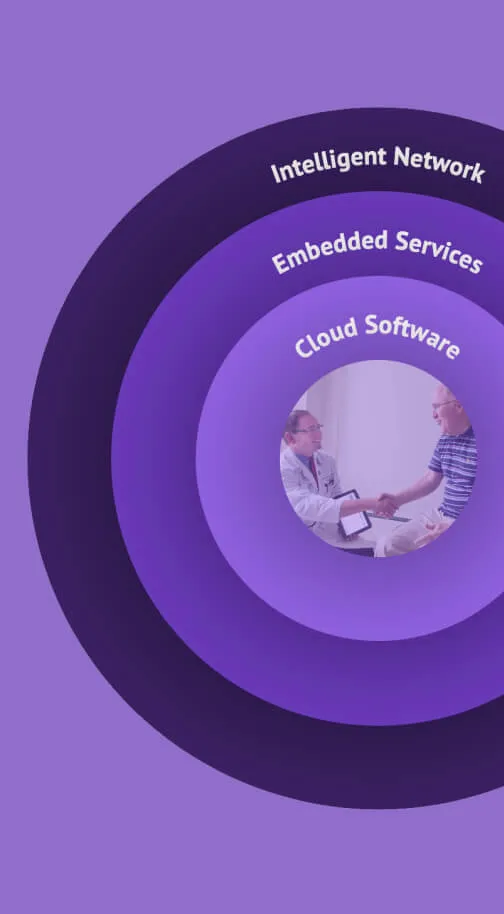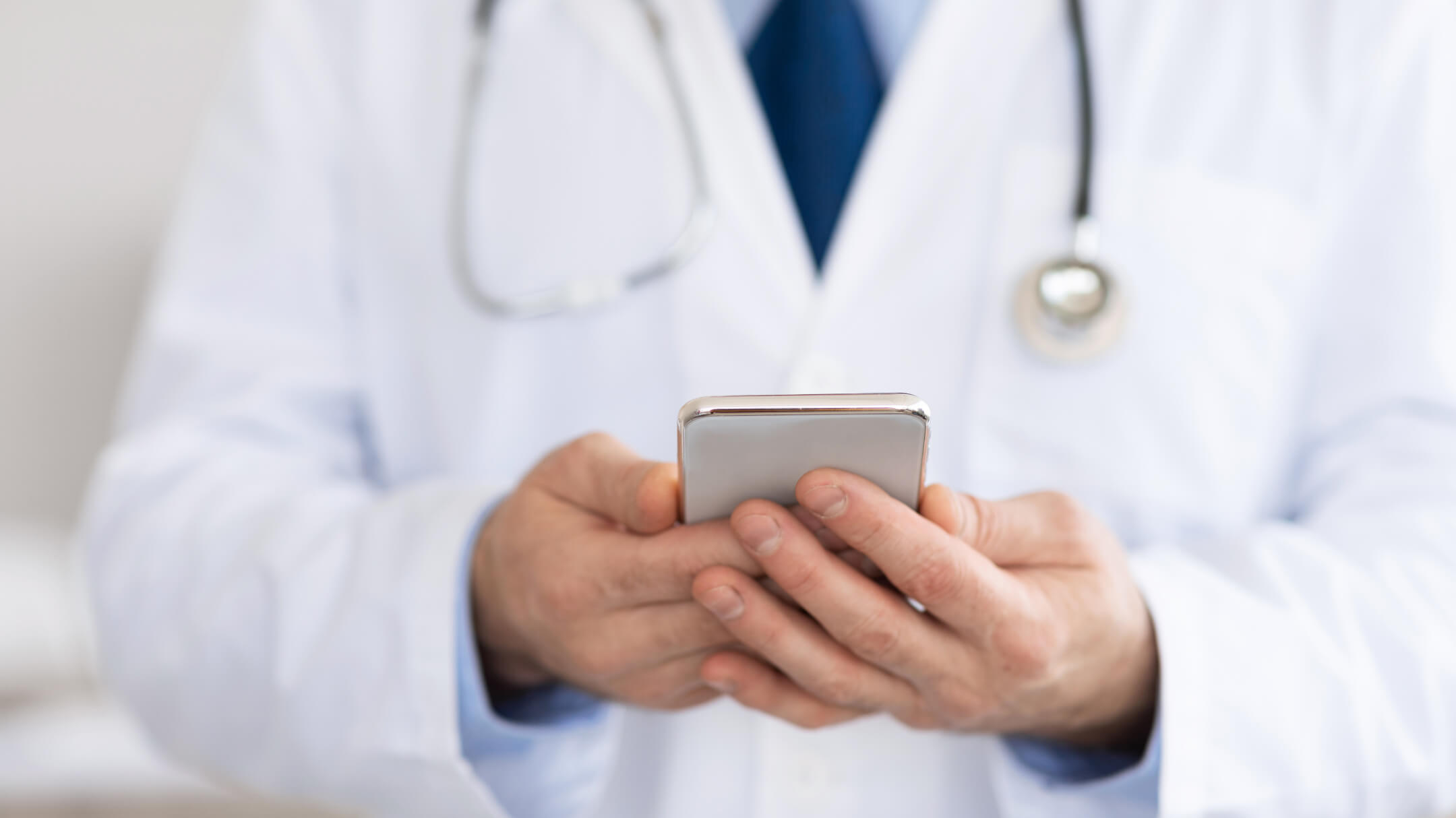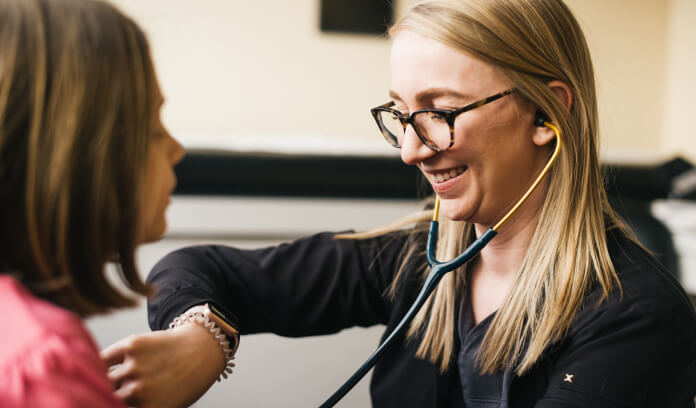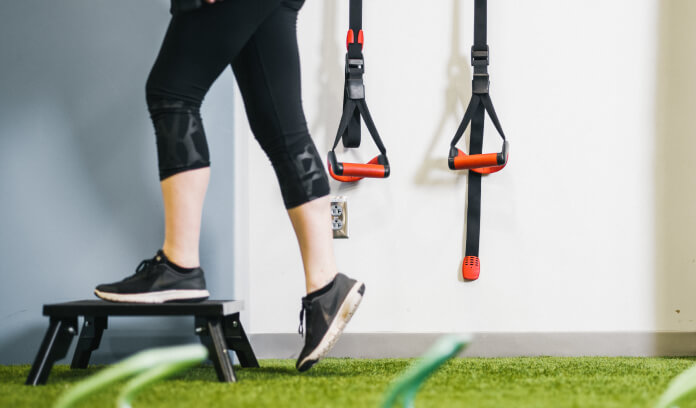Provider burnout and distraction are some of the most-talked-about issues in healthcare today, but the conversations rarely go beyond how doctors have to trade off pajama time with their families in lieu of a laptop. It’s time to embrace solutions via modern marvels that allow professionals to save time, deliver better care, and increase revenue. Even better? Most of these technology tools embraced by practices enhance the patient experience, too, thanks to better face-to-face communication both at the point of care with dictation support, and at home with telehealth options such as doctor messaging portals and virtual diagnoses.
1. ChronicCareIQ
Capabilities: Chronic care management, remote patient monitoring
Providers can proactively engage patients through remote monitoring using ChronicCareIQ, encouraging them to save offices’ time by answering personalized health-related questions when prompted via phone, email, or text message. Responses of patients who use the app are automatically integrated into the EHR, and dashboards alert staff to those who need outreach. At the end of the month, practices can take advantage of reports within the application to better track services that require billing follow-up. This can be through CallerIQ, which captures and applies qualifying clinical phone time for reimbursements or via a clinical activity tracker. Other features include care-plan generation and prescription refill tracking. ChronicCareIQ is ideal for remote-patient monitoring and chronic and/or transitional care management, as questions about diseases are answered between visits so their progression is often counteracted sooner. Doctors can easily provide between-visit support for preventative care, while having more of their time allocated to acute cases requiring hands-on care. (Learn more about ChronicCareIQ on their website and on the athenahealth Marketplace.)
Fact: Practices that use ChronicCareIQ report 29% fewer hospitalizations and readmissions. (Source: athenahealth Marketplace)
We are better in touch with our patients; patients feel better knowing that they have daily or regular contact with our office, and we have improved communication with less phone calls. We are also now being reimbursed by our commercial payers, advantage plans, and Medicare. I could have never provided this level of care without this technology.
-James H. West, M.D., Perimeter North Internal Medicine, Roswell, Georgia
2. Rhinogram
Capabilities: Patient communication, telehealth
Rhinogram offers a suite of options to enhance the speed and ease of communications within care teams and with patients. For providers, Rhinogram makes land lines textable so they can save time by eliminating phone calls, and has also integrated Facebook Messenger for communications. Care teams can communicate with each other through Rhinogram’s messaging functionality, and each professional’s dashboard has permissions customized for their role (reception, clinical review, and billing). For patients, there are no apps to download or login information to remember, and they can interact with a visit manager and reminder system that automatically updates EHRs with appointment updates. They can also upload images to share via a messaging portal with providers, who can potentially diagnose issues online. (Learn more about Rhinogram on their website and on the athenahealth Marketplace.)
Fact: 79% of consumers are more likely to choose a physician who offers virtual care over one who does not. (Source: athenahealth Marketplace)
One of the attributes we loved from the very beginning was that we could all share the texts and help each other respond. … [Messaging] never goes away so you can always see a conversation attached to a patient no matter how long it’s been.
-Kristin Bludel, CFO, Thurman Orthodontics, Bakersfield, California
3. Sopris Health’s Assistant app
Capability: Dictation
Physicians spend 49% of their time on documentation but just 27% of their time with patients, according to an Annals of Internal Medicine study. A possible solution? Sopris Assistant, an artificial-intelligence scribe that can be downloaded for phones and tablets. The app eliminates document distraction during patient visits by predicting most of the note writing for each encounter, which is personalized to each provider. Sopris also prompts questions post-visit for providers to speak or tap suggested answers. The intuitive, chat-style interface means onboarding new users takes a half-hour or less. (Learn more about Sopris Assistant on their website and on the athenahealth Marketplace.)
Fact: Providers who use Sopris Assistant on average reduce time spent on documentation by 80 percent. (Source: Soprishealth.com)
As a clinician and executive member, I see and experience the ripple effect of insufficient documentation processes. Sopris Health helped us ditch duplication, sure up wasteful data entry and ultimately allow our clinician team to do more of what they love on the job — serve patients.
-Ron Campbell, Regional Nurse Consultant, Kane Financial, Jacksonville, Florida
4. Relaymed
Capability: Connects lab results directly into EHRs
Manual entry of lab test results into EHRs not only takes time but potentially increases the risk of error. Relaymed’s app automatically sends point-of-care test results from devices to a patient's EHR, not only cutting down on time waiting for diagnoses but resulting in faster follow-up treatment and appointments. Data can be accessed at any place at any time, so there’s no need to travel from location to location. Relaymed requires little training to use and handles quality controls, Levey-Jennings charts, abnormality flags, device calibration, and more. (Learn more about Relaymed on their website and on the athenahealth Marketplace.)
Fact: Tests conducted but not recorded in the EHR can result in revenue loss of up to 20%, according to Relaymed figures.
Test results now go straight to the EHR, meaning practice staff can focus on more important tasks. Productivity and satisfaction are through the roof.
-Phillip Bressoud, MD, FACP, University of Louisville Physicians
5. Epion Check-In
Capabilities: Digital check-in
Epion benefits both patients and doctors, since the former can get text-message prompts to check in from home, upload insurance card information, add health history and contact information, and sign consent forms ahead of time. The tool saves providers an average of six-and-a-half minutes per appointment, thanks to customization options for questions, messaging, and intake. The result is more time for more encounters and enhanced revenue opportunities, especially due to determination of insurance eligibility before appointments and a reduction in no-shows and late arrivals. (Learn more about Epion on their website and on the athenahealth Marketplace.)
Fact: According to Epion data from January 2020, providers who use the digital check-in tool report an average increase of 73% in time-of-service collections.
The move to Epion has been transformational. … Our clinical staff now have more time to spend with patients and our front-desk staff is more productive.
-Bob Karl, CFO, Christus Physician Group












